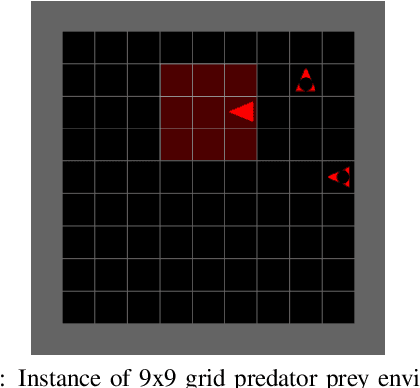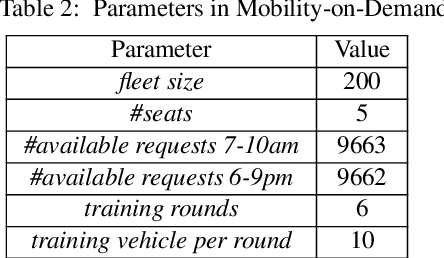Multi-Agent Transfer Learning in Reinforcement Learning-Based Ride-Sharing Systems
Paper and Code
Dec 01, 2021



Reinforcement learning (RL) has been used in a range of simulated real-world tasks, e.g., sensor coordination, traffic light control, and on-demand mobility services. However, real world deployments are rare, as RL struggles with dynamic nature of real world environments, requiring time for learning a task and adapting to changes in the environment. Transfer Learning (TL) can help lower these adaptation times. In particular, there is a significant potential of applying TL in multi-agent RL systems, where multiple agents can share knowledge with each other, as well as with new agents that join the system. To obtain the most from inter-agent transfer, transfer roles (i.e., determining which agents act as sources and which as targets), as well as relevant transfer content parameters (e.g., transfer size) should be selected dynamically in each particular situation. As a first step towards fully dynamic transfers, in this paper we investigate the impact of TL transfer parameters with fixed source and target roles. Specifically, we label every agent-environment interaction with agent's epistemic confidence, and we filter the shared examples using varying threshold levels and sample sizes. We investigate impact of these parameters in two scenarios, a standard predator-prey RL benchmark and a simulation of a ride-sharing system with 200 vehicle agents and 10,000 ride-requests.
 Add to Chrome
Add to Chrome Add to Firefox
Add to Firefox Add to Edge
Add to Edge